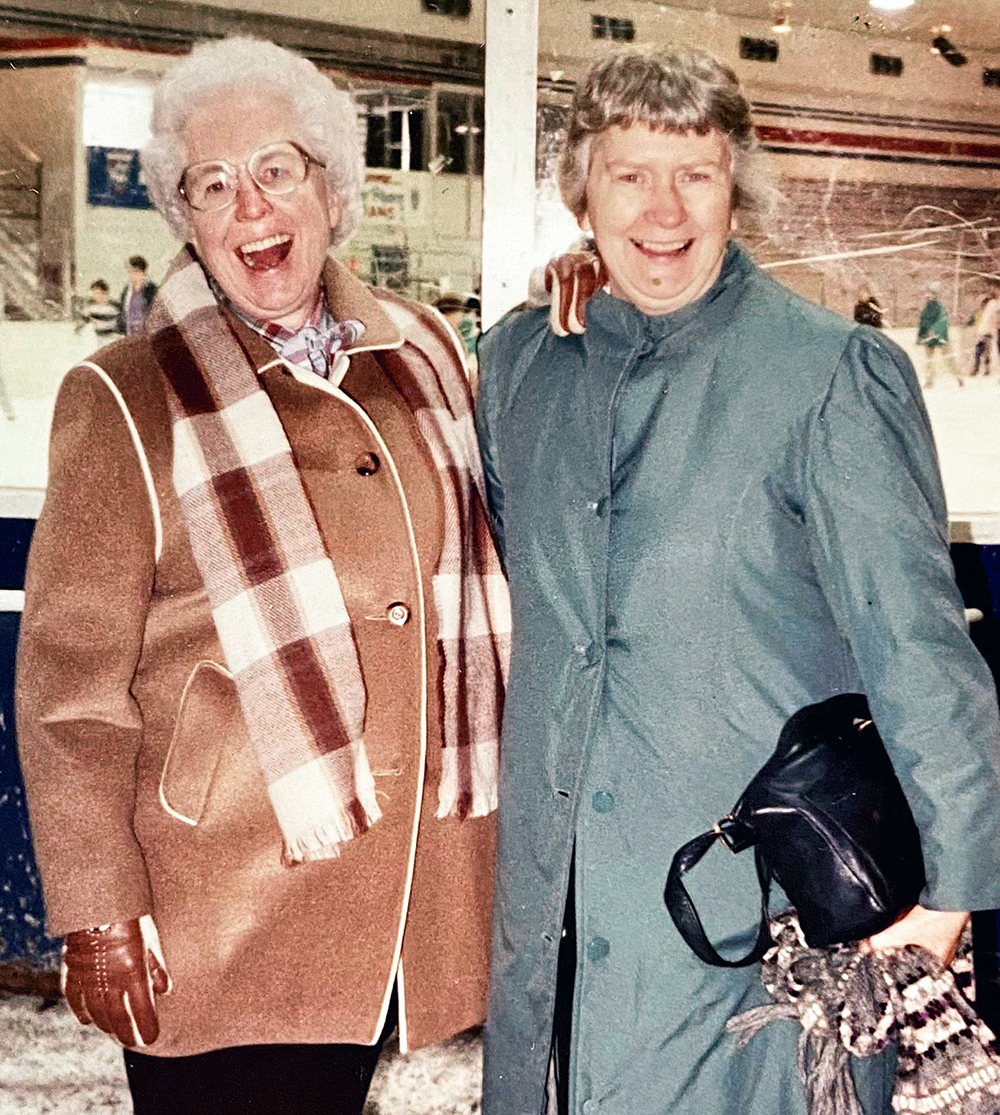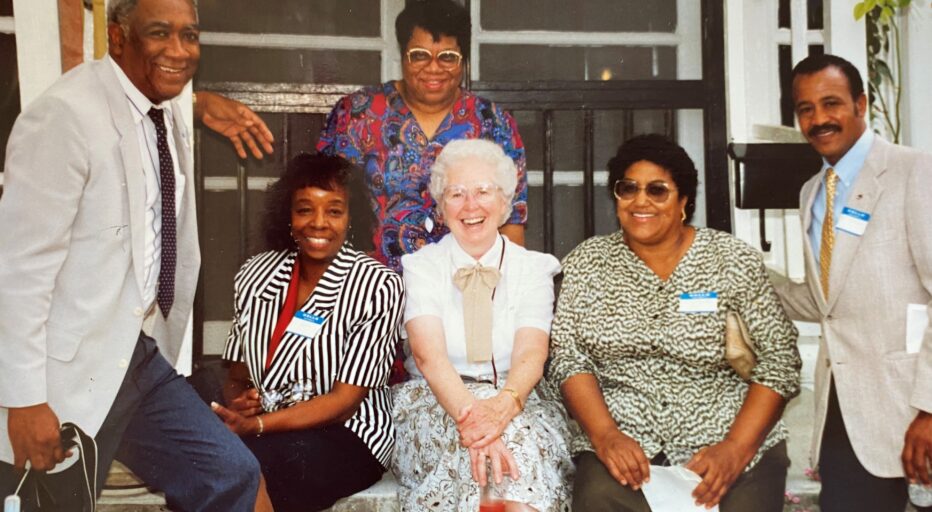From early childhood, S. Michele Doyle profited from her parents’ steadfast faith. “They taught me, my brother, and my sister our basic prayers, took us to Mass regularly, and ‘made’ the First Friday Mass,” she recalls.
Born in Forest Park, Illinois, she attended St. Bernardine School, which was staffed by the School Sisters of St. Francis. “My parents were very supportive of the sisters who ministered in the parish,” S. Michele says. “On Sunday morning, my dad would bring ‘bakery’ and the newspaper to the convent. He also drove the sisters to their various destinations.”
“I had always wanted to be a sister, and certainly the lives of the sisters influenced this desire,” she says. “My parents did not object, but they insisted that I complete high school before making such a momentous move.”
S. Michele entered the School Sisters of St. Francis at age 17 and was received into the community as a novice at age 18. Her first mission was in McHenry, Illinois, where she taught second grade for two years. Drawn to missionary work, she visited the community’s superior general during her novitiate. “I volunteered to work in China, but she told me that this was not an opportune time since Communism was infiltrating the country,” she says.
But then S. Johannella, the directress for those in temporary vows, approached S. Michele about a mission closer to home, yet very different from her own life experience. “She said the community was looking for sisters who would be willing to go to Mississippi. I didn’t hesitate and was delighted with the idea of teaching high school.”
S. Michele was sent to Yazoo City, where the pastors of St. Francis Parish were members of the Society of the Divine Word. Priests and sisters ministered together in what was a predominantly Baptist community, both in the parish and in the elementary and high schools. It was a turbulent time in Mississippi, with the country in the midst of racial desegregation and the rise of the Civil Rights movement.
“The other sisters on the mission and I joined the NAACP, whose members used our gym for their meetings,” she remembers. “The focus of the sisters was on providing the best education possible for the students at St. Francis. African-American history was taught in the high school before that subject became popular. We also provided education for the parents, both through government programs and social activities, and we conducted endless fund-raising activities. We began a Head Start program in 1969 which became, under S. Mary Louise Reinke’s leadership, an outstanding example in the South.”
I still feel I can make a contribution to my community, and really want to as long as I am able
Sister Michele doyle
Her ministry always involved education in some form: two years teaching second grade, then two decades teaching in Yazoo City, where she also served as the high school principal. “Next, I taught religion at a local Catholic high school, and history at Jackson State University. This was followed by eight years in the Diocese of Jackson office of adult religious formation, focusing on the Rite of Christian Initiation for Adults (RCIA).”
In 1983, S. Michele was elected to serve on the leadership team of her community’s United States Province. Following two four-year terms at the Milwaukee Motherhouse, she moved back to Mississippi where she served as a pastoral minister, was a photographer for the diocesan newspaper, created adult formation programs for small parishes, and offered adult education in five parishes.
“My most meaningful ministry was in Yazoo City,” S. Michele recalls. “We were a small high school – our highest enrollment was 144 students – so I taught almost all the subjects in social studies, business, journalism, and religion.

Now retired and living on the community’s Milwaukee campus at the Maria Linden Independent Apartments, S. Michele misses the warm Mississippi weather and the people with whom she ministered for more than six decades. “But Maria Linden welcomes sisters, associates and lay people, so we are a totally intercultural living situation—a microcosm of our world,” she says.
“I still feel I can make a contribution to my community, and really want to as long as I am able,” she says, as she prepares to celebrate her 80th anniversary of consecrated life next year. “I write a daily reflection on scripture, I have presented sessions on African-Americans waiting to be canonized, and I serve on the planning committee for my congregation’s 150th anniversary in 2024. Through it all, the community continues to be here for me!”
— by Sister Ruth Hoerig
